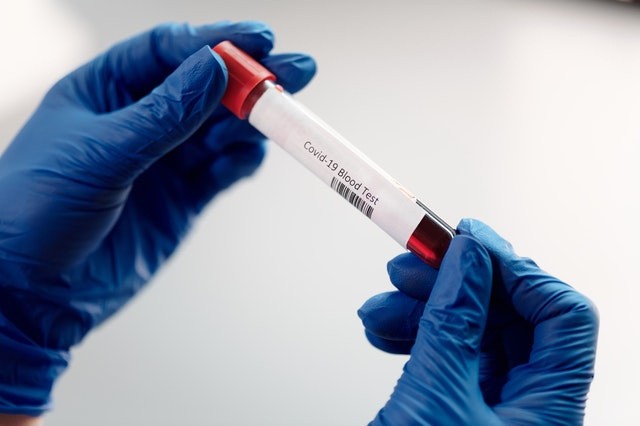A personalized lung cancer risk assessment that combines a blood test based on a four-marker protein panel created at MD Anderson and a PLCOm2012 independent model accounting for smoking history was more sensitive and particular than the 2021 and 2013 United States Preventive Task Force USPSTF criteria.
As specified in a EurekAlert! report, combined with a risk model based on the history of an individual, more precisely determines who is possible to benefit from lung cancer screening compared to the US recommendation, as stated in recently published research.
This research involved participants from the PLCO or Prostate, Lung, Colorectal and Ovarian Cancer Screening Trial with at least a "10-pack-year smoking history."
If executed, the blood test plus model would have found and shown 9.2 percent more lung cancer cases for screening and lessened referral screening among non-cases by 13.7 percent compared to the 2021 USPSTF standards.

Blood Test Helpful for Lung Cancer Screening
Describing their research published in the Journal of Clinical Oncology, Sam Hanash, MD, Ph.D., Clinical Cancer Prevention professor and McCombs Institute for the Early Detection and Treatment of Cancer leader said, they acknowledge that a small percentage of people are entitled to lung cancer screening through a yearly low-dose CT scan are certainly getting a screening.
Furthermore, CT screening is not readily available in the majority of the countries. Therefore, added Dr. Hanash, for many years, their goal has been to develop for lung cancer "that much more effective."
The professor also said their research reveals for the first time, a blood test could help determine who may benefit from screening for lung cancer.
The USPSTF has recommended that adults at high lung cancer risk get a low-dose CT scan every year, which was shown to lessen deaths from lung cancer in the 2011 National Lung Cancer Screening Trial or NLST.
Four-Protein Marker Panel's Performance Assessed
The 2021 USPSTF standards apply to adult individuals aged 50 to 80 years old who have at least a "20 pack-year smoking history" and presently and presently smoke or have quit within the last 15 years.
Hanash, together with his colleagues, developed a blood test combining biomarkers that they identified before as predictive of lung cancer risk, a similar Medical Xpress report specified.
A team used a blinded study to assess the four-protein marker panel's performance in combination with the PLCOm2012 model, which was independently developed and verified to forecast a six-year risk for lung cancer among those who presently smoke or smoke in the past.
Hanash explained that there were numerous different types of markers when they started to work on a blood test. They have done several analyses over the last ten years to come up with a cost-efficient test that is simple yet tough, which has been this study's guiding principle.
To test the blood markers' combination with the PLCOm2012 model, the study investigators examined over 10,000 biospecimens from the PLCO research, including over 1,200 blood samples retrieved from more than 550 individuals who developed lung cancer and more than 8,700 samples taken from more than 2,100 who did not develop lung cancer.
Related information about blood-based lung cancer tests is shown on Mayo Clinic's YouTube video below:
Check out more news and information on Cancer in Science Times.
© 2026 ScienceTimes.com All rights reserved. Do not reproduce without permission. The window to the world of Science Times.











